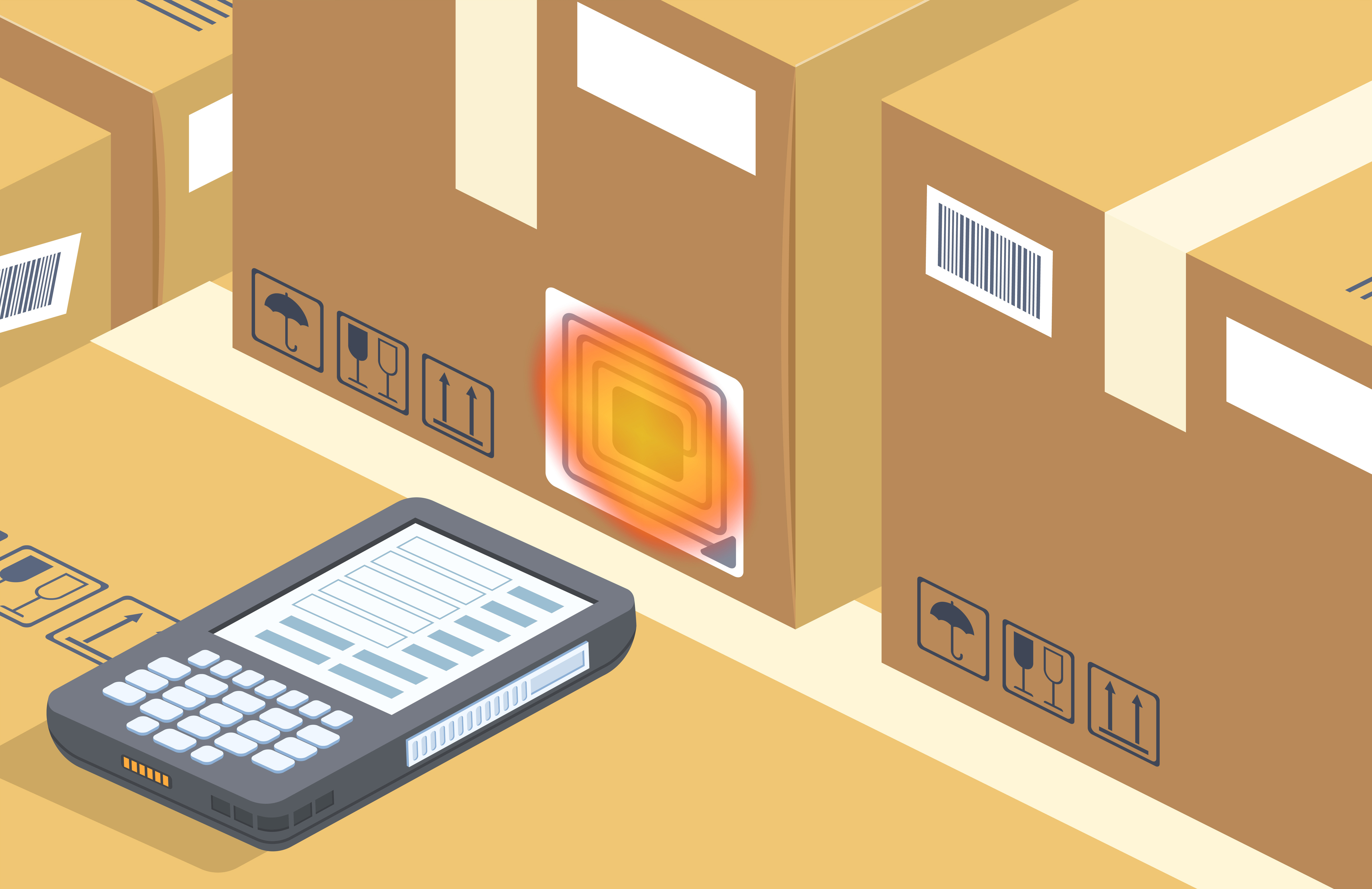Overhyped or Helpful? GPS, RFID, and Bolt-On YMS
Victoria Papadelis
August 29, 2024
13 min read
Efficient yard management is critical to staying ahead in today’s logistics landscape, but outdated or poorly suited technologies can hold you back. From trailer tracking to gate operations, the tools you choose directly impact your bottom line. GPS, RFID, and bolt-on YMS systems each promise to enhance yard operations, but how do they really perform? Which technologies deliver real value, and which are simply overhyped?
This guide dives into the strengths and weaknesses of these technologies, providing a clear-eyed look at what works and what doesn’t. Drawing on expert insights and real-world examples, we’ll explore the impact of GPS, RFID, and bolt-on YMS solutions on yard efficiency and help you make the best choice for your operation.
Whether you’re dealing with lost trailers, rising detention fees, or inefficiencies that slow down your yard, we will help you cut through the noise, dispel the myths, and give you an honest breakdown of what actually works in the yard.

GPS
GPS technology has evolved significantly over the past few years, transforming from a basic tracking tool into a powerful asset for yard management. In the past, GPS accuracy was often questioned, but today’s advancements offer precise, real-time location data that can pinpoint trailer positions within just a few feet. This level of detail is invaluable for operations that rely on knowing exactly where their assets are at all times—both on the road and in the yard.
How GPS Works in the Yard
GPS devices, typically attached to trailers or other yard assets, communicate with satellites to determine their exact location. The data collected can be integrated directly into yard management systems, giving a real-time map view of trailer positions. This visibility allows yard managers to quickly locate trailers, reduce search times, and improve overall yard efficiency. GPS is especially beneficial for yards managing owned assets, where the need for accurate location data is paramount.
The Benefits of GPS in Yard Management
- Enhanced Visibility and Control: With GPS, yard managers gain a clear, up-to-the-minute view of asset locations, which reduces the time wasted searching for trailers and boosts operational efficiency. This visibility can be crucial in high-traffic yards where quick access to assets is a necessity.
- Improved Safety and Security: GPS helps prevent potential safety hazards by reducing the need for drivers to wander the yard in search of trailers. Knowing the exact location of trailers minimizes unnecessary movement, which enhances overall safety and reduces the risk of accidents. Additionally, GPS can be a deterrent to theft, providing valuable tracking information if a trailer goes missing.
- Optimized Jockey Moves: GPS data can be used to streamline jockey move requests, allowing yard personnel to move trailers more efficiently. Integrated yard management systems can automatically assign jockeys based on the trailer's current location and the nearest available yard truck, minimizing idle time and improving turnaround times.
- Reduced Detention Fees and Penalties: Knowing precisely where trailers are at all times helps to avoid costly delays. Accurate trailer tracking ensures that trailers are loaded and unloaded promptly, reducing detention fees and keeping operations on schedule.
- Data-Driven Decision Making: GPS provides valuable data that can be analyzed to optimize yard layouts, identify bottlenecks, and improve overall operational efficiency. Over time, this data helps yard managers make more informed decisions, leading to better resource allocation and cost savings.
Challenges and Considerations
While GPS technology has clear benefits, it’s important to note that not all trailers and assets come equipped with GPS devices. For companies that rely on third-party carriers, access to GPS data can be limited, as some carriers may not provide real-time location information. In these cases, dedicated yard management solutions like ours can integrate with the available GPS data to maximize visibility and ensure that all trailers, whether owned or leased, are accounted for.
Additionally, GPS devices require initial setup, ongoing maintenance, and battery management or power solutions, such as solar panels, to keep the devices operational. However, the long-term benefits often outweigh these initial costs, especially when considering the significant improvements in yard efficiency and reduced penalties.
How Yard Management Solutions Enhances GPS Capabilities
At Yard Management Solutions, we take GPS integration a step further. Our dedicated yard management platform seamlessly incorporates GPS data into an intuitive interface that shows exactly where each trailer is located on a real-time map. Users can create move requests directly from the map, trigger alerts for misplaced trailers, and generate detailed reports to analyze yard performance.
We work closely with industry-leading GPS providers like Geotab and Samsara, ensuring that our system is compatible with the best tracking technology available. Our focus on integration means that whether you have a fleet of GPS-equipped trailers or are just getting started, our system can provide the visibility and control you need to elevate your yard operations.
Verdict: Helpful
GPS technology is a game-changer for yard management, offering precise tracking, enhanced safety, and streamlined operations that directly contribute to a more efficient and cost-effective yard.

RFID
RFID (Radio Frequency Identification) technology was once hailed as a revolutionary tool for tracking assets in the supply chain. It promised precise tracking through tags and readers, providing a potential solution for managing trailers and equipment in the yard. However, in practice, RFID’s application in yard management has often fallen short of expectations. The technology’s limitations, high costs, and operational challenges have led many to question whether it is still a viable option compared to newer, more efficient alternatives like GPS.
How RFID Works in the Yard
RFID systems use small tags attached to trailers or other yard assets, which emit radio signals when scanned by RFID readers. These readers are typically installed on yard trucks, gates, or fixed positions within the yard, capturing the tag’s location data. The data is then relayed to a yard management system, which attempts to map the asset’s position in the yard.
In theory, this approach sounds effective, but the reality is far more complex. RFID relies heavily on the precise placement and consistent functioning of tags, readers, and supporting infrastructure. Any misalignment or failure can result in inaccurate data, leading to misplaced trailers and operational confusion.
The Drawbacks of RFID in Yard Management
- Inconsistent Accuracy: RFID systems often struggle with precision, particularly in large, busy yards. Signals can bounce off trailers, containers, and other metal surfaces, causing reflections that lead to incorrect readings. This can result in trailers being incorrectly placed on yard maps, creating significant inefficiencies and requiring time-consuming manual checks.
- High Costs and Maintenance: Implementing RFID in a yard involves significant upfront costs for tags, readers, and installation, as well as ongoing maintenance. Tags can be lost or damaged, especially when attached temporarily to trailers owned by third-party carriers. Replacing these tags and maintaining the infrastructure can become a costly and time-consuming endeavor, quickly eroding any potential savings.
- Operational Complexity: RFID systems often require complex integrations between tags, readers, and yard management software. The technology must work seamlessly to provide accurate data, but frequent misreads and technical issues can disrupt operations. Additionally, tags may need frequent battery replacements or maintenance, adding another layer of operational complexity.
- Limited Scalability with Third-Party Assets: For yards that work with multiple carriers or leased trailers, RFID poses significant challenges. Not all third-party assets will have RFID tags, and many carriers are reluctant to maintain tags for equipment that is frequently on the move. This inconsistency can create gaps in visibility, reducing the effectiveness of RFID as a yard management solution.
- Tag Loss and Signal Interference: Tags are prone to being lost, damaged, or simply failing to transmit, particularly when attached to trailers temporarily. RFID systems also suffer from signal interference due to environmental factors like weather, yard layout, and metal surfaces, further compromising the accuracy of data. In many cases, this leads to trailers being inaccurately tracked or multiple trailers being incorrectly stacked in the same location on the yard map.
Why RFID Falls Short Compared to GPS
RFID’s primary weakness lies in its reliance on external factors—readers, tags, and environmental conditions—that can vary greatly from yard to yard. While GPS relies on satellite data that remains relatively consistent and accurate, RFID’s dependence on local hardware makes it far less reliable. This variability makes it difficult for yards to achieve the level of accuracy required for efficient operations, leading to unnecessary costs and operational headaches.
Moreover, RFID requires ongoing investment in hardware and labor, from installing new tags on trailers to maintaining readers and troubleshooting system errors. This can quickly add up, making RFID a far more expensive option over time compared to the relatively low-maintenance nature of GPS.
The Evolving Role of RFID: Niche Use Cases Remain, but Limitations Persist
While RFID has proven beneficial in certain niche applications—such as within controlled environments like warehouses—it often struggles when applied to the dynamic, open environment of a yard. For warehouses, RFID can effectively track goods and pallets within a defined space, but those same benefits do not always translate to the yard where external conditions and asset variability are significant challenges.
In some specific yard scenarios, RFID can still be useful, such as for managing high-value assets that rarely leave the yard or for operations with highly controlled entry and exit points. However, these situations are the exception rather than the rule, and the broader application of RFID in general yard management is often more trouble than it’s worth.
Why Yard Management Solutions Recommends a Different Approach
At Yard Management Solutions, we believe in using the right technology for the right job. Our experience shows that while RFID can add some value, it often fails to meet the accuracy, scalability, and cost-effectiveness required for effective yard management. Instead, we focus on integrating technologies like GPS that offer more reliable, scalable, and cost-efficient solutions for tracking yard assets.
Our dedicated yard management platform is designed to work seamlessly with GPS data, delivering precise, real-time visibility without the costly infrastructure and maintenance overhead of RFID. We provide tools that help you manage your yard without the need for tags, leveraging a process-driven approach that identifies trailer locations and movements based on real-time data and user inputs.
Verdict: Overhyped
While RFID has its place in specific applications, it often falls short in the yard. High costs, frequent inaccuracies, and operational complexities make it an inefficient choice compared to newer technologies like GPS.

Bolt-On Yard Management Systems
Bolt-on Yard Management Systems (YMS) are often marketed as convenient add-ons to existing Warehouse Management Systems (WMS) or Transportation Management Systems (TMS). These systems promise to extend basic yard management functionality without requiring a separate solution, appealing to companies looking for an all-in-one platform. However, while bolt-on YMS solutions might seem like a quick fix, they often come with significant limitations that can hamper your yard's overall efficiency and performance.
What Are Bolt-On YMS Systems?
Bolt-on YMS systems are yard management modules that are attached to larger software platforms, such as WMS or TMS solutions. These add-ons are not designed from the ground up as dedicated YMS solutions but are instead built as secondary features within broader systems. While this approach can offer some level of yard management capability, it’s often a simplified version of what a specialized YMS can provide.
Companies may choose bolt-on YMS options because they are already using the primary software (WMS or TMS), and adding a yard management component can seem like a seamless, cost-effective way to manage yard activities. However, bolt-on solutions are frequently underdeveloped, lacking the depth, configurability, and robust features that dedicated YMS systems offer.
The Limitations of Bolt-On YMS Systems
- Limited Feature Set and Flexibility: Unlike dedicated YMS systems that are purpose-built to address the complexities of yard operations, bolt-on YMS solutions often provide only the most basic functions. They typically lack advanced features such as dynamic task management, automated gate controls, detailed reporting, and in-depth analytics. This limited feature set can leave critical gaps in visibility and control, making it difficult for yard managers to fully optimize their operations.
- Poor Integration with Yard-Specific Needs: Bolt-on YMS modules are often designed to fit within the architecture of WMS or TMS platforms, which can restrict their ability to handle the unique demands of yard management. For example, features like precise trailer tracking, automated jockey assignments, and customizable workflows may be either missing or underdeveloped. As a result, these systems struggle to meet the complex needs of a busy yard, where rapid decision-making and detailed data visibility are essential.
- Lack of Expertise and Support: Providers of WMS and TMS systems are experts in managing inventory within the warehouse or tracking goods in transit, but yard management requires a different set of skills and insights. Bolt-on YMS solutions often fall short because they are not backed by teams that specialize in yard management. This lack of expertise becomes evident when companies face issues or require customization, as bolt-on providers may not have the in-depth knowledge needed to offer effective support.
- Complicated User Experience: Since bolt-on YMS systems are not standalone solutions, their interfaces can feel disjointed and cumbersome, especially when switching between yard management tasks and other functions within the broader software. Users may find themselves navigating through layers of menus and settings that were not originally designed with yard operations in mind, leading to inefficiencies and increased training requirements.
- Inadequate Scalability and Customization: As your yard operations grow, bolt-on YMS systems can quickly become inadequate. Their limited configurability makes it difficult to scale processes, adapt to new business requirements, or implement yard-specific workflows. This rigidity forces companies into one-size-fits-all solutions that often do not align with their evolving needs, resulting in lost opportunities for optimization and growth.
- Higher Long-Term Costs Due to Inefficiencies: While bolt-on YMS systems may initially seem like a cost-effective solution, the inefficiencies they introduce can lead to higher operational costs over time. Missed moves, lost trailers, and the inability to accurately track and optimize yard activities can create hidden expenses that quickly add up. Additionally, any attempts to customize or enhance the bolt-on solution often come with hefty consulting fees, negating any initial savings.
Why Dedicated YMS Solutions Outperform Bolt-Ons
Dedicated YMS systems, like Yard Management Solutions, are specifically designed to address the unique challenges of yard operations. Unlike bolt-on modules, dedicated YMS solutions provide a comprehensive suite of features tailored to streamline every aspect of yard management—from automated gate entry and precise trailer tracking to real-time jockey scheduling and advanced analytics.
Our dedicated YMS is built to integrate effortlessly with existing WMS and TMS platforms, providing a unified solution without sacrificing the specialized functionality needed for yard optimization. With our system, you get the best of both worlds: seamless integration with your current software ecosystem and a powerful, purpose-built tool for managing your yard.
Key Advantages of a Dedicated YMS Over Bolt-On Solutions:
- Full Suite of Yard-Specific Features: Our system includes advanced tools like geofencing, automatic move requests, detailed performance reporting, and customizable workflows that bolt-on YMS solutions simply can’t match.
- Expert Support and Continuous Improvement: At Yard Management Solutions, we live and breathe yard management. Our dedicated support team and industry experts are always available to provide guidance, troubleshoot issues, and help you get the most out of your investment.
- Scalable and Configurable to Your Needs: Our YMS is highly configurable, allowing you to tailor it to your exact operational requirements. As your business grows, our system evolves with you, providing the flexibility and scalability that bolt-ons lack.
- Enhanced User Experience: Our intuitive interface is designed specifically for yard management, making it easy for users to navigate, perform tasks, and access the data they need without unnecessary steps.
Verdict: Overhyped
While bolt-on YMS systems may offer a convenient add-on, they rarely deliver the depth and efficiency that a dedicated YMS provides. Don’t settle for a limited solution—choose a dedicated YMS that’s built to maximize your yard’s potential.

Choose the Right Technology to Drive Yard Efficiency
When it comes to yard management, choosing the right technology can make or break your operation's efficiency and bottom line. GPS has proven itself as a helpful tool, providing unparalleled accuracy and reducing wasted time searching for trailers. RFID, once considered cutting-edge, now lags behind due to its high costs, maintenance issues, and frequent inaccuracies. And while bolt-on YMS systems might seem like a convenient addition to your existing WMS or TMS, they often lack the depth, expertise, and specialized support required to truly manage your yard effectively.
At Yard Management Solutions, we specialize in doing one thing exceptionally well—yard management. Our dedicated YMS goes beyond the basics, offering unmatched configurability, real-time visibility, and seamless integrations that bring all your yard data into one easy-to-use platform. Unlike bolt-on systems that treat the yard as an afterthought, our solution is designed specifically to tackle the unique challenges of yard operations. This means more accurate data, better decision-making, and faster, more efficient yard processes—all without the guesswork.
See the Difference in Action – Book Your Live Demo Today!
Why settle for subpar solutions when you can have a system that’s designed from the ground up to transform your yard operations? Whether you're struggling with trailer tracking, managing gate check-ins, or coordinating yard jockey moves, our system delivers the visibility, control, and efficiency you need to stay ahead of the competition.
Don’t leave your yard management to chance. Schedule a personalized live demo and see how Yard Management Solutions can streamline your operations, reduce costs, and maximize productivity. Discover the power of a dedicated YMS that’s built to handle the complexity of today’s supply chain challenges.